2026 Elections: What Ugandans want fixed in education
“We want our children to learn and grow, but the distances are too long. Many of us cannot afford to pay for transport, and not every child can make the long walk to school every day,” Dinner Katusabe, the LC1 chairperson of Rwensororo village, said.
The only community primary school in Rwensororo, Ntooma parish, Bwijanga sub-county, Masindi district. With the nearest government-aided school in the parish 14km away, residents built the school.
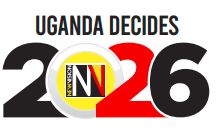
CITIZENS’ MANIFESTO
Uganda has, over the years, become a preferred education destination. A 2024 report on foreign students studying in Uganda indicates an increase of foreigners applying for a student pass in the last five years.
According to the report by the Directorate of Citizenship and Immigration Control, applicants shot from 42,163 between 2018 and 2021 to 46,685 between 2022 and 2024.
The foreign students cut across all levels of education, from primary to university. Experts have linked this trend to the quality and affordable education in the country and government efforts to prioritise the education sector.
Starting this year, the government will construct another 116 seed secondary schools for sub-counties without government secondary schools, under the programme dubbed Uganda Secondary Education Expansion Project (USEEP).
The project, worth $171m (about sh629.95b), is funded by both the World Bank and the Government. USEEP will also see another 61 secondary schools expand in refugee-hosting areas.
However, despite the achievements, the problems that have previously been associated with education, including congestion, poor infrastructure and shortage of teachers, persist in some schools.
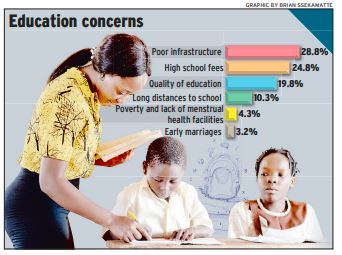
Nawampendo Primary School in Igombe sub-county, Bugweri district, has 557 learners seeking basic education.
The school, located at Walanga parish in Bugweri, has just four permanent classrooms, despite running a complete school system with classes from Primary One to Primary Seven.
In the same district, Butalango and Nkombe primary schools currently conduct classes either in the nearby church structure or under trees because they have fewer than seven permanent classrooms.
It is the same challenge in Rwensororo village in Ntooma parish, Bwijanga sub-county in Masindi district, where school dropout is rampant because of the long and exhausting trek of about 14km to Ntooma Primary School, which is the nearest school in the whole village.
Parents and local leaders say education has become a luxury, instead of a right.
“We want our children to learn and grow, but the distances are too long. Many of us cannot afford to pay for transport, and not every child can make the long walk to school every day,” Dinner Katusabe, the LC1 chairperson of Rwensororo village, said.
In response to this crisis, residents of Rwensororo established Rwensororo Community Primary School a decade ago. Built using wood and serving seven classes, the structure remains vulnerable to weather conditions, particularly rain.
“It’s very hard for the parents to construct a durable structure here because these are collapsible soils. It needs a government hand,” Majidu Alinda, the chairperson of the school’s management committee, said.
The strain on the limited facilities, especially in the rural areas, is one of the challenges that Ugandans want the Government to prioritise.
The challenges are not limited to Bugweri and Masindi; data from the education ministry shows that at least 800 government primary schools have four or fewer permanent classrooms.
This is reflected in the Citizens’ Manifesto and opinion poll conducted by Vision Group between March and May this year.
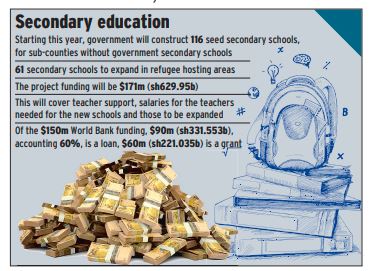
The survey, which covered 6,006 Ugandans across 58 districts and all 17 sub-regions, showed that education is the second most pressing issue behind health (53%).
Thirty-four percent of the respondents listed education as their second most pressing issue.
Poverty and the road network tied in third place, at 29%. Other issues were employment (19%), water and sanitation (16%), food security (15%), national security (15%), energy access (13%) and land (8%).
What regions want
According to the regions, education was a strong concern in Teso sub-region, with 54% of the respondents calling for urgent improvement.
Teso was followed by Bunyoro at 46%, Busoga (41%) and Bugisu (38%), while the respondents from Kampala (14%), Sebei (21%), and West Nile (18%) seemed less concerned about education.
Affordability
Under the Guidelines for Safe Conduct of Entertainment and Co-curricular Activities and elections of student leaders in pre-primary, primary and post-primary schools and institutions, the government set rules to regulate other fees charged in schools.
Recently, there was a call to the Government to allow parents to contribute to school requirements. However, the research indicates that close to one quarter of the population cannot afford the fees.
Recently, President Yoweri Museveni said the Government may change the policy on free education in all government schools because some parents cannot afford the costs involved.
Museveni called upon leaders at all levels to assess and determine whether parents in their communities are financially capable of paying school fees to enable the Government to revise its policy on free education.
“The question to you, the leaders, whether political, religious, or cultural, is whether those people you see in the villages can afford school fees. You should answer that. The NRM observed that they could not and introduced free education. If they can pay for themselves, we can change the policy,” Museveni said.
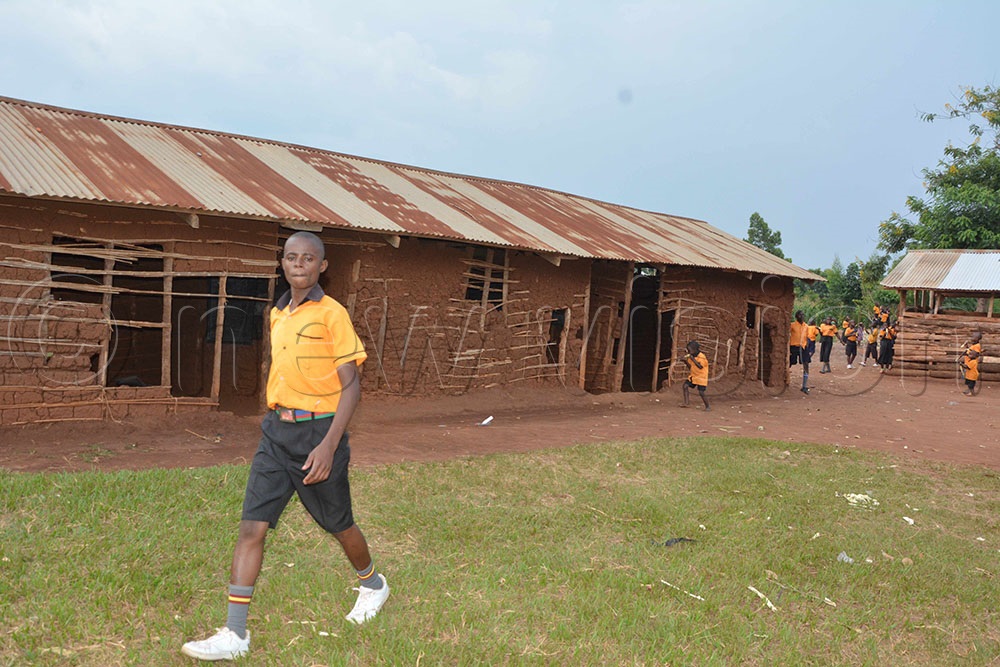
A classroom block at Ikoba Nursery and Primary Community School in Bubogo parish, Kikuube district. Parents and local leaders want the Government to take over the management of the school to improve the education standards in their area.
He highlighted the need to assess the financial capacities of families in their communities for clarity on whether parents are genuinely unable to pay or are merely unwilling.
According to President Museveni, this arises amidst ongoing challenges in implementing Universal Primary Education (UPE) and Universal Secondary Education (USE) programmes, which he said are perpetrated by headteachers working with the school committees in many government schools to impose various school fees, including charges for extra teachers and lunch.
He highlighted these challenges as major barriers to free education. According to the survey, the population is also concerned about the quality of education, with at least 19.8% of them citing untrained teachers and inadequate study materials as a major impediment.
At least 10.3% of the respondents indicated that many children, especially those in rural areas, still walk longer distances to school, a huge contributor to school dropouts.
As of December 2023, the education ministry data indicated that there were 1,617 parishes across the country without a government primary school.
To address this challenge, the Government has adopted another plan of grant-aiding formerly private and community primary schools.
At least 2,270 private primary and secondary schools applied to become grant-aided between the 2023 and 2024 calendar years.
In addition, 4.3% of the respondents cited social factors, such as poverty and lack of menstrual health facilities in schools, as challenges in education, while 3.2% indicated that early marriages must be addressed to keep girls in school.
Other issues like lack of interest in schooling, indiscipline, teacher demotivation, and corruption are less frequent, but highlight underlying systemic weaknesses.
Govt plan
While challenges exist, Dr Kedrace Turyagyenda, the education ministry permanent secretary, explained that the Government is increasingly making progress to provide quality education and sports for all.
“You might have seen that the education budget has improved over the years. We have also improved capitation for the beneficiaries under the Universal Primary Education (UPE),” she said.
The education sector budget has gradually improved over the years, growing from sh4.3 trillion in the financial year 2023/2024, to sh5.02 trillion in 2024/2025 and sh5.5 trillion in the current financial year.
This is more than what Tanzania allocated to education, but less than Kenya’s. This financial year, Kenya allocated 16.6% of the total budget. Tanzania has also raised the education budget over the years.
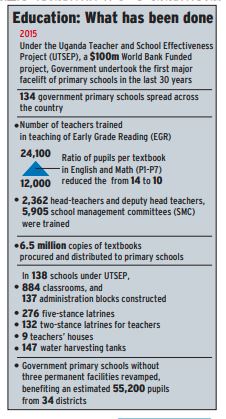
Under the current financial year, Tanzania raised its education budget from Tsh1.97 trillion (about sh2.7 trillion) to Tsh2.4 trillion (about sh3.4 trillion).
In 2015, the Government, under the Uganda Teacher and School Effectiveness Project, a $100m World Bank-funded venture, undertook the first major facelift of primary schools in the last 30 years.
At least 134 government-aided primary schools spread across the country, but with fewer than three permanent schools, were built and equipped with modern facilities.
The Government continues to code formerly private schools and make them grant-aided to increase access to free education in communities without a public primary school.
Dr Cleophus Mugenyi, the acting director of basic and secondary education at the ministry, said the ministry had received applications from at least 2,000 community schools seeking to become grant-aided.
Secondary education
Since 2018, the Government has constructed 259 new secondary schools for sub-counties, dubbed seed schools, under the World Bank-funded Uganda Intergovernmental Fiscal Transfers Programme.
Starting this year, the Government will construct another 116 seed secondary schools for sub-counties without government secondary schools, under the programme dubbed Uganda Secondary Education Expansion Project.
The project, funded by both the World Bank and the government, will also see another 61 secondary schools expand in refugee-hosting areas.
The beneficiary sub-counties, town councils and divisions are located in 30 local governments, selected across the country. The project funding will be $171m (about sh629.95b).

For Uganda to address the gaps in education and achieve its goals, the World Bank says, the country must raise its education budget by 440%.
Issues cited
The survey respondents ranked poor school infrastructure as the biggest challenge under the education issues.
The population also cited high school fees, untrained teachers and inadequate study materials as big barriers to education in Uganda.
The people’s manifesto has been running for four consecutive election cycles, and education remains one of the major concerns in all the surveys.
Under education, at least 28.8% of the respondents cited poor infrastructure as the most significant challenge affecting education access and quality in Uganda.
This was closely followed by the burden of high school fees, with 24.8% urging the government to regulate the fees structure in both public and private schools.
According to this category of respondents, the high fees continue to stop many children from accessing education, and it is a huge contributor to school drop-outs.
Although the education ministry has constituted strict guidelines on the fees charged in both private and secondary schools across the country, some schools still charge exorbitantly.
What should be done?
For Uganda to address the gaps in education and achieve its goals, the World Bank says, the country must raise its education budget by 440%.
In addition, the World Bank recommended that the country recruits at least 360,000 additional teachers across all levels of education to meet the demand created by 3% annual population growth.
Education sector analyst Patrick Kaboyo, a teacher and the executive director of the Education Advocacy Network, says the views of the people in the Citizens’ Manifesto are a reflection of what is on the ground. However, for the country’s education sector to improve, he said: “The Government must invest in its teachers as soon as possible.”
Until the Government addresses the challenges of teacher motivation, including rewards and recognition of teachers, as well as harmonisation of salaries, Kaboyo noted that nothing will change.
“We have teachers earning almost 10 times what their colleagues earn. Such practices demotivate others. It creates conflict even within the school. We appeal to the Government to address the issue of teachers’ salaries,” he said.
“Once these are addressed, we will see teacher absenteeism reduced.” It is about time the country taught all parents that it is their responsibility to provide education to their children, and not the state, Kaboyo noted.
“Many parents still think that it is the role of the government to educate their children. This is wrong. Many parents do not care. They don’t even feed or provide scholastic materials to children. We must teach them now,” he said.
Martin Obore Okiria, a retired headteacher who served at Soroti Secondary School in Soroti city, noted that there is an urgent need for the Government to regulate fees.
Okiria said the current fees structures at the respective schools are driving parents to loan sharks, and that many are struggling to pay back the money.
In addition, he said, the fees need to be regulated to curb the class divide in society, where the rich and the poor go to different schools.
However, Okiria said even the government-aided schools under the universal education programmes should be allowed to charge moderate fees to cover meals.
“For universal schools, I would recommend that the government comes up with a fees cap, especially on meals, which is acceptable to all parents. Currently, on paper, these schools do not charge fees, but on the ground, they are charging a lot. Therefore, it should be regulated to acceptable charges,” he said.
Okiria also wants the Government to recruit more teachers in all its schools, as well as regularly stock schools with scholastic materials, to eliminate the changes where these schools charge to cover the gaps.
“One of the reasons government schools charge these fees is that there are teachers not on the Government payroll. You will also find many of these schools buying additional scholastic materials and building classrooms. The Government should take over all these responsibilities,” he said.
Rasul Luriga, the Yumbe district education officer, called for more attention to teacher recruitment. He noted that only 1,666 teachers are available in the 137 primary schools in the district, with a total enrolment of 178,000.
“This gives a teacher-pupil ratio of 1:107 learners, as opposed to the national standard of 1:53 learners. The district requires at least 1,754 teachers to fill the gaps.”

Voters' voices
Ruth Namusobya, resident of Namalemba village, Bugweri district
The Government should stop the collection of development fees in public schools. Why should this cash be demanded from learners in a universal education setting?
William Ochola, resident of Walumbe village, Mayuge district
The Government should create employment for the graduates. Many of our children complete school, just to come home and sit without jobs, making those still in school doubt the value of education.
Lillian Nakitende, Hoima district
Many girls are getting pregnant in our communities because they cannot access education and that is very dangerous. Our district leaders haven’t helped us.
Noelene Kamusiime, Hoima district
Due to the absence of secondary schools, students are forced to trek long distances to schools in the neighbouring sub-counties, which has led to a surge in school dropout, especially among girls who cannot continue with secondary education.
Minima Kasifa, resident of Maru East, Kochi sub-county, Yumbe district
I thank the Government for increasing the number of schools in the district. However, in most schools, especially Goboro Primary School in my area, more than 100 children are taught in one classroom, causing a lot of congestion.
The schools have a limited number of teachers. Sometimes learners study only one lesson Turyagyenda in most classes.